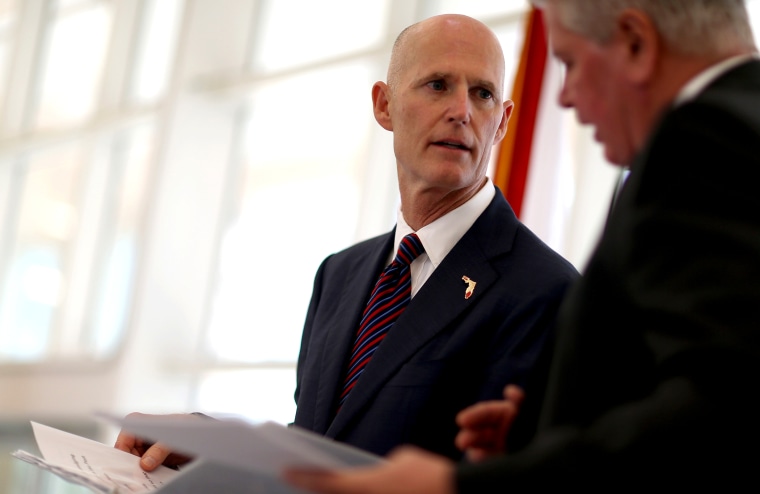Florida's Gov. Rick Scott's 2014 is not off to a great start. Fewer than one in four residents in his state think he's doing a good job, and now one of his signature campaign issues has been shot down by a federal judge.
This week a federal judge ruled that Florida's 2011 law requiring welfare applicants to submit to drug testing was unconstitutional. U.S. District Judge Mary Scriven ruled that the urine tests violate the Fourth Amendment's protections against unreasonable searches and seizures by the government.
"The court finds there is no set of circumstances under which the warrantless, suspicionless drug testing at issue in this case could be constitutionally applied," Scriven said in Tuesday's ruling.
Scott plans to appeal the decision.
"Any illegal drug use in a family is harmful and even abusive to a child. We should have a zero tolerance policy for illegal drug use in families — especially those families who struggle to make ends meet and need welfare assistance to provide for their children," Scott said in a statement according to the Miami Herald. "We will continue to fight for Florida children who deserve to live in drug-free homes by appealing this judge's decision to the U.S. Court of Appeals.
State lawmakers enacted the 2011 law requiring applicants to the Temporary Assistance for Needy Families program to take drug tests after Scott campaigned on it during his 2010 election. Applicants who didn't test positive were reimbursed the $35 cost of the test by the state.
When he pushed the plan, Scott argued that studies showed that people on welfare used drugs at higher rates than those not on welfare. After Florida's law was implemented, 2.6% of applicants tested positive. According to the National Institute on Drug Abuse, about 8% of the general population over the age of 12 uses illegal drugs in a given month.
